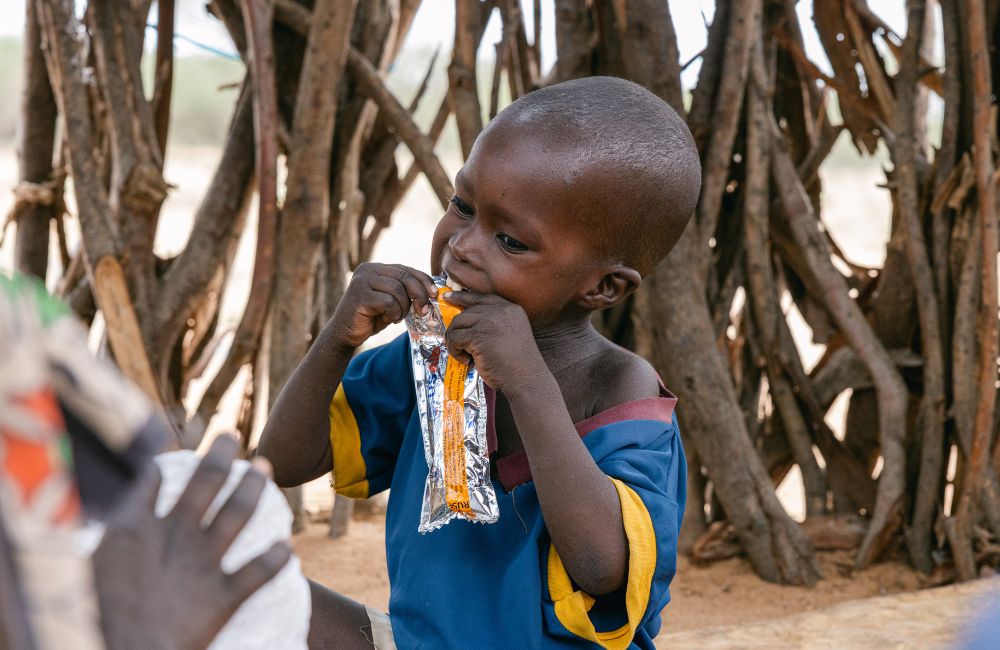
This therapeutic peanut paste is packed with protein, minerals and vitamins in each sachet.
Therapeutic peanut paste is used to help treat malnourished children. Within hours of having peanut paste, a child struggling against this deadly condition can start to feel their energy levels pick up. Over the following days, strength begins to return to wasted muscles.
Silence born from hunger is broken. Laughter, cries, giggles – the sounds of children – return.
Save the Children’s health clinics are tangible proof that donor support can help save lives.
But as hunger continues to bite, global aid cuts are threatening the medical interventions proven to stop malnutrition. Supplies of therapeutic peanut paste are at risk, and health clinics in remote communities are being forced to shut down.
Photo: Sam Vox / Save the Children.